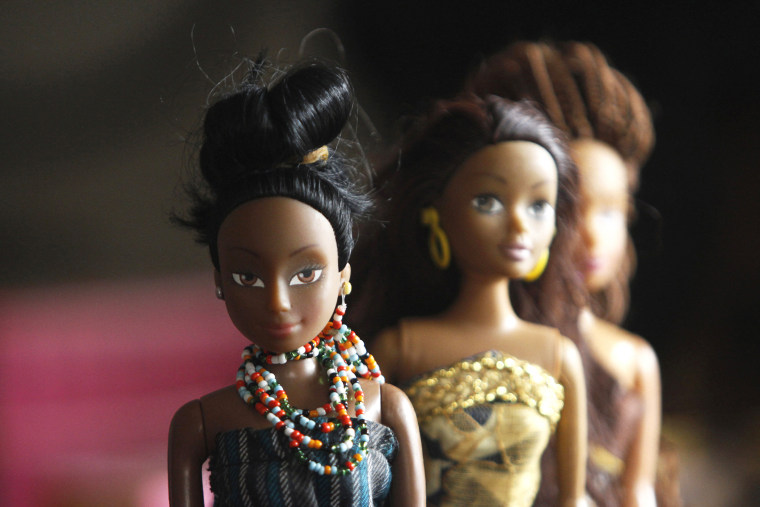Step aside, Barbie.
Seven years since a new kind of Barbie came to town aimed at changing how beauty is defined for young children, demand for the doll has skyrocketed, with up to 9,000 sales a month.
The Queens of Africa and Naija Princesses dolls were created by Nigerian entrepreneur Taofick Okoyo, who started the line in 2007 after searching and failing to find black dolls for his niece in Nigeria. In his own household, he said, he also noticed his daughter's dolls were all white.
"I happen to be the kind of person that doesn't enjoy complaining and criticizing without taking any action," Okoyo said in an interview with ELLE.com last month.
The 43-year-old businessman ordered parts from China and began making dolls based on Nigeria ethnic groups Yoruba, Igbo, and Hausa. The dolls are dressed in a variety of bright prints and traditional African clothing. On Okoyo's website, some of the dolls are photographed together with a #BringBackOurGirls sign.
According to Reuters, Mattel has little presence in Sub-Saharan Africa, leaving a gap in the market for entrepreneurs like Okoyo, who sells between 6,000 and 9,000 dolls a month.
Global reception of the dolls has been positive as users flood the Queens of Africa Facebook page asking for the dolls to be made available outside of Nigeria. "I'm so glad we have a true Ethnic doll that's beautiful for dark skin girl to light," one comment reads.
"These dolls are wanted and needed. Please continue making them and selling them a online so they are available to everyone," another person wrote.
Along with the dolls, a Queens of Africa book series is available through Amazon. Okoyo says he also has plans to develop new dolls in the future with diverse body types.
"My mission is to make the Queens of Africa [what Barbie isn't to Africans] a symbol of hope, trust, and confidence by promoting African history, culture, and fashion," Okoyo told ELLE.com.
He added, "The power of toys and play tools cannot be underestimated. It could be a greater influencer than we realize."
